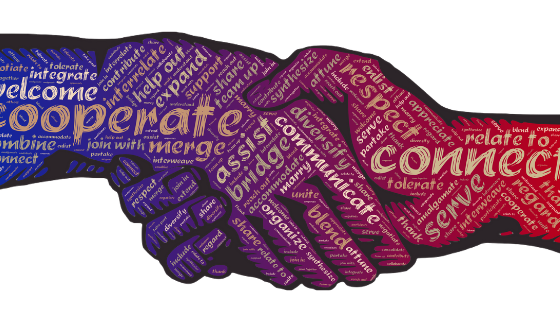Have you considered approaching disagreements, conflicts, and confrontations as a gardener?
These conversations have tremendous benefits to our lives when engaged properly. They give us the ability to teach one another, to learn from one another, to understand one another, to sympathize with one another, to correct one another, to improve one another, to align with one another, and ultimately seek truth. Whether these discussions occur personally, professionally, politically, or religiously, they are necessary for constructive growth. Unfortunately, many people are unable to effectively sway other individuals to accept their reasoning or point of view due to a lack of using the correct skills that effectively influence people in a conversation.
The quickest ways to have your point of view ignored, even if you are 100% correct, is by using inflammatory language, making fun of the other person, losing your composure, or attempting to embarrass the other person while stating your case. Each of these examples leads the other individual into a defensive mindset which is likely to cause them to respond back in anger as opposed to listening to your position.
How many times have you seen an argument on social media that presents a powerful truth, but the words were lost because an individual started their point by stating, “You’re a moron if you believe ______________.” How many times have you watched a cable news show and observed two opposing political pundits raising their voices, talking over each other, and spewing childish insults back and forth. How many times have you argued with a family member, friend, or coworker and lost your temper because they would not agree with your reasoning? In each of these examples, the likelihood of one person effectively influencing the other to their point of view is extremely unlikely.
To effectively influence others to accept your point of view, consider the following 7 common sense principles.
- Focus on the fact that your goal is not to win the argument or change the other person’s opinion, your goal is to effectively present your case.
- Listen to the other person’s point of view with curiosity and seek to understand their reasoning. Ask questions to steer the conversation towards honest transparency.
Use phrases such as:
- “Help me to understand why you believe _____________.”
- “That’s an interesting take, I had not considered your point before you mentioned it. Have you considered my point about _____________?
- “What do you think about ________________________ ?”
- “From my experience I’ve learned___________________, what are your thoughts about my statement?”
- Base on what we’ve said, do you agree we both believe ____________________?”
- Seek common ground. Give praise for the items you both agree upon during the discussion. Charm is a powerful ally in a disagreement, and praising the other person helps make them feel important and respected which increases the likelihood that they will become openminded to understand and consider your point.
- Avoid losing your temper, using inflammatory language, and making fun of the other person’s beliefs. The moment you stoop to these examples, you have lost.
- Quickly admit your mistakes and remain open to change your opinion if the other person is correct in their argument.
- Strive to persuade the other person to believe your conclusion is their own. Use tips #1 – #5 and work to make your idea their idea. People are much more inclined to push for their own idea rather than someone else’s. After a thorough discussion, find the items you both agree upon and simply restate your opinion as their opinion and ask them if you both are in alignment. Again, your goal isn’t to win the argument, and if you both still disagree, that’s okay. Often you must agree to disagree.
- Ultimately, consider approaching disagreements, conflicts, and confrontations as a gardener. Tip #1 encourages you to focus on effectively stating your case. Think of this step as planting a seed and the remaining tips as the work which helps nurture the seed to grow. In the case of large emotional disagreements, it should come as no surprise that the opposing individual will not immediately change their position when realizing their error. An overinflated ego and too much pride are typically the factors expressing control during the moment when someone realizes they are wrong in an emotional debate. By effectively stating your case and refraining from pushing the other person to admit their mistake allows them to feel respected. Allow time to work its magic. How often in your life has someone spoken to you days, months, or even years after an argument and stated, “You were right.” Often, if presented with kindness and respect, your point of view can find acceptance much quicker. A seed planted properly will blossom on its own.
How will you use these tips when you have disagreements, conflicts, and confrontations?





